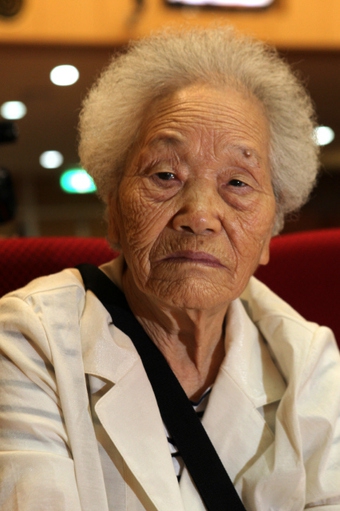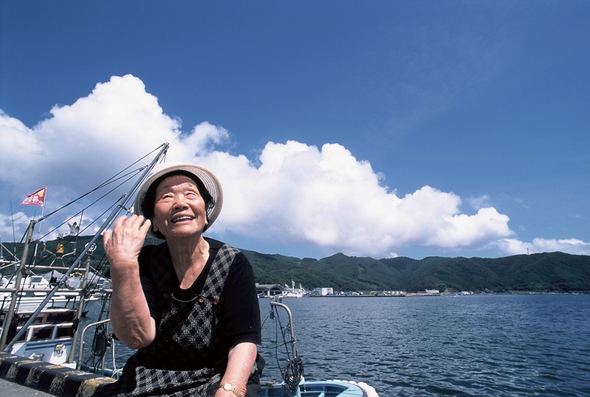Posted on : Dec.20,2017 17:05 KST
Modified on : Dec.20,2017 17:09 KST
 |
|
Song Sin-do, a former comfort woman who passed away at the age of 95. (Hankyoreh Archive)
|
Number of surviving women has been reduced to 32
 |
|
Song Sin-do, a former comfort woman who passed away at the age of 95. (Hankyoreh Archive)
|
Song Sin-do, the only former comfort woman living in Japan who sued the Japanese government for an apology and compensation, passed away at the age of 95. This reduces the number of surviving comfort women who are registered with the South Korean government to 32.
A group supporting litigation for Korean-Japanese former comfort women said on Dec. 19 that Song had died of natural causes in Tokyo on Dec. 16. Born in South Chungcheong Province in 1922, Song was taken to a comfort station in Wuchang (today, Wuhan in Hubei Province) under false pretenses in 1938, when she was 16 years old, and forced to work as a comfort woman. Song lived in Japan after its defeat in World War II, and she began her legal battle in Apr. 1993 by filing a lawsuit in the Tokyo District Court about the compulsory mobilization of the comfort women.
Though Song eventually lost her lawsuit when the Supreme Court of Japan rejected her appeal in Mar. 2003, a documentary recording the progress of the lawsuit over those 10 years, called “My Heart is Not Broken Yet,” created a stir when it was released in 2007.
Yang Jing-ja, the head of the litigation support group, was the first person to meet Song in 1992 and aid her legal cause, and she continued to take care of Song until recently. “Song was the first former comfort woman living in Japan to take her cause to the courts, and she fought that battle to the end. It took courage to file that lawsuit,” Yang said.
Nearly two years after the governments of South Korea and Japan reached an agreement about the comfort women, a task force that reviewed the progress and the content of that agreement is supposed to publish its report on Dec. 27. Amid these developments, South Korean Foreign Minister Kang Kyung-wha visited Japan on Dec. 19 to meet with Japanese Prime Minister Shinzo Abe and Foreign Minister Taro Kono and provide Japan with an explanation of the report.
 |
|
Despite undergoing horrible experiences as a comfort woman for the Japanese Imperial Army, Song Sin-do never lost her joy or sense of humor. “The world must not make war again,” she said. (Hankyoreh Archive)
|
The Japanese government once again asked for the comfort women agreement to be implemented. It also explained that, after Abe heard Kang’s explanation about the report, he told her that the Japanese government’s position is that it is important for South Korea to faithfully implement the agreement reached two years ago.
Song’s funeral was held behind closed door by the litigation support group, and the Korean Council for the Women Drafted for Military Sexual Slavery by Japan (Jeongdaehyeop) is planning to hold a memorial service for Song during the 1,314th Wednesday demonstration, which will be held in front of the former site of the Japanese embassy in the Jongno District of Seoul on Dec. 20.
“During Kang Kyung-wha’s visit to Japan, she should not subordinate the issue of human rights for the comfort women to economic and diplomatic issues. Instead, she should keep the two separate, voice the government’s position and address the comfort women’s human rights issue,” said Yoon Mi-hyang, president of the council.
By Cho Ki-weon, Tokyo correspondent and Kim Ji-eun and Ko Han-sol, staff reporters
Please direct questions or comments to [english@hani.co.kr]











